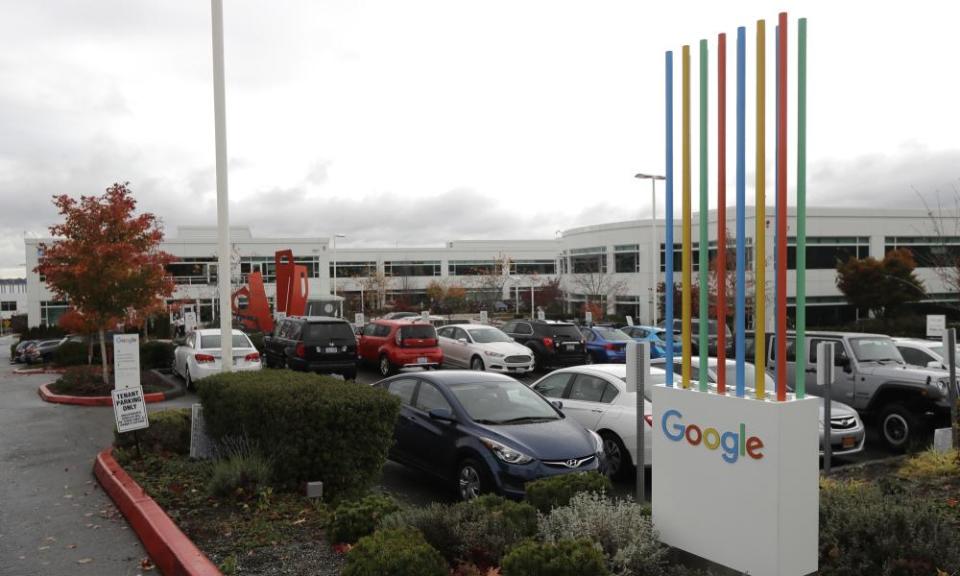Lawsuit targets secrecy agreements surrounding Google's new campus
Google’s plan to expand their campus into a new city has echoes of Amazon’s secretive year-long second headquarters process

Officials in San Jose, California, negotiating with Google over the tech company’s plan to build a massive new campus, are improperly withholding documents, a lawsuit alleged on Tuesday.
The suit argues that non-disclosure agreements (NDAs) signed by San Jose mayor Sam Liccardo and as many as 18 city staffers at the request of Google were “illegal and invalid”. It seeks to force the city to turn over documents requested under California’s public records law.
“We are very afraid that there is a backroom deal happening,” said Maria Noel Fernandez, deputy executive director of Working Partnerships USA, a labor and community organization that is one of two plaintiffs in the suit. “It really does make me question what could possibly be so disturbing about this project that they have gone to these lengths to keep it secret.”
The most populous city in the San Francisco bay area, San Jose has been somewhat shielded from the region’s gentrification and housing crises, as major companies elected to expand north of their Silicon Valley suburban office parks into San Francisco, rather than into the sprawling city to the south.
But Google’s proposal to locate as many as 20,000 employees in a new development within the city limits has raised concerns about “making San Jose a place where everyday people can no longer survive”, Fernandez said.
The lawsuit was filed the same day that Amazon ended a year-long process to choose a location for a second headquarters, a process that was notable for its extreme secrecy. After selecting 20 “finalists” from more than 200 vying to host the company’s highly-paid workforce, Amazon required local officials to sign NDAs to keep the bidding war shielded from public scrutiny.
“It makes me very afraid that every concern I have for this project is true,” said Fernandez of the news that a nearly $800bn company will be rewarded with almost $3.5bn in public subsidies by New York City, northern Virginia, and Nashville. “These cities are bending over backwards to get these companies, at the cost of our communities.”
Requiring cities and counties to sign NDAs is a “growing trend”, said David Snyder, executive director of the First Amendment Coalition, a government accountability group that is the other plaintiff against San Jose.
“Large powerful companies have a lot of leverage when they’re dealing with municipalities and county governments, especially where they are small,” Snyder said. “The incentives for local governments just to sign overly broad NDAs are too strong. They have to be cognizant of their obligations to the public.”
Richard Doyle, the city attorney for San Jose, said that the negotiations with Google had been the “most transparent” of any development process in his 17 years with the city and that there was “nothing illegal” about the NDAs.
Still, he acknowledged that the city “withheld certain documents that were deliberative and pertinent to the negotiation process”.
“We didn’t want to show our hand,” Doyle said.
